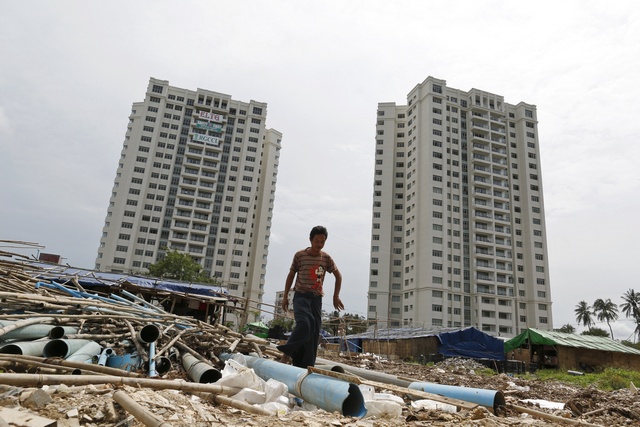The World Bank says that Burma’s economy is projected to grow at 6.8 percent in 2013/14, rising to 6.9 percent in the medium term. However, it raised concerns about the country’s inflation which hit 7.3 percent in August.
In its first edition of the Myanmar Economic Monitor (MEM) on 6 November, the World Bank reported that Burma’s growth in 2012/13 was “strong” at 6.5 percent driven mainly by performances in gas production, services, construction, foreign direct investment, and commodity exports.
“The outlook is positive, with the economy projected to grow at 6.8 percent in 2013/14 and rising further to 6.9 percent in the medium-
Term,” the MEM said. “This will be on account of a continued increase in gas production, increased trade, and stronger performance in agriculture.”
It also indicated that the outlook in the short to medium term “remains positive, although there are risks, both on the domestic as well as external fronts.”
The report noted that inflation has been on the rise in recent months, reaching 7.3 percent in August, on account of increasing food and housing rental costs.
“Rising inflation is always a cause for concern since it hurts the poor disproportionately, but economies do sometimes experience rising inflation, especially when in transition as is the case in Myanmar [Burma],” said May Thet Zin, the World Bank’s country economist for Burma. “However, there is no cause for alarm yet because inflation remains in single digits in Myanmar. Nonetheless, it will be important for the authorities to keep a close eye on the situation so that it does not get out of hand.”
[related]
Burmese economic expert Aung Ko Ko said that inflation causes a hike in commodity prices while forcing suppliers to reduce production, inflicting losses on the country’s economy.
“Inflation is a significant issue that can be caused by the financial deficit which our country has been experiencing. It is important to bring it under control,” he told DVB. “Because of inflation, we have to spend more in the financial sector. That’s why our economy has not developed as it is should have.”
He said that Burma’s neighbour China was able to keep inflation below three percent during its economic transition, which allowed investors to weigh up both short-term and long-term prospects.
Aung Ko Ko suggested that Burma should aim to rein in inflation to under five percent, noting that to do so would signify the government’s ability to manage its economy well.
Another economic expert, Maung Maung Soe, was somewhat more scathing however. He said that although Burma practices a market economy, the inflation was not simply caused by changes in supply and demand, but that the Burmese government was responsible for interference.
“The government is one of the responsible parties for this inflation,” he told DVB. “It was they who decided to increase electricity fees and fuel prices, two sectors controlled by their cronies. If fuel prices go up, then inflation goes up; and it is usually the public who have to endure all the negative consequences.”
The World Bank report on Wednesday also noted that in recent months the exchange rate of the kyat has been depreciating, which helps to make Burma’s exports more competitive. “However, these indicators appear to have started appreciating in August, which could erode Myanmar’s export competitiveness,” the report said.
The MEM also noted that the various reforms recently undertaken by Naypyidaw appropriately focus on improving the environment for business in the country. “These include the removal of import and export licensing requirements on some 600 products, the approval of new regulations on foreign investment to provide greater clarity to some aspects of the new Foreign Investment Law enacted last year, the granting of licenses to private insurance companies for the first time in 50 years, and the enactment of the anti-corruption law, just to mention a few,” the report said.
The MEM follows a report issued less than two weeks ago which rated Burma as among the worst places in the world to do business. In its annual “Doing Business” report, the bank ranked Burma 182 out of 189 countries studied, citing its poor regulatory environment and limited protection for investors as key obstacles.
“Foreign investors have flooded the country following the stripping of western economic sanctions,” the 28 October report said, but warned that “archaic laws and bureaucratic systems may stifle entrepreneurship.”
The report said there was “considerable scope” for reform but praised government efforts to improve business regulations, including introducing corporate tax breaks under the 2012 Foreign Investment Law.



